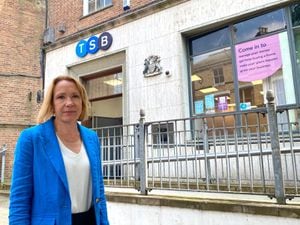To be a farmer you have to be an eternal optimist
A year has passed since the Horsegate scandal hit the headlines; this resulted in the price of beef rising sharply and, by midsummer 2013, the prices the butchers and meat wholesalers were paying to buy cattle had reached an all time high.
The Farmer columnist Rob Alderson considers the implications of optimism over realism
During this period of soaring beef prices, the farmers that rely on purchasing store cattle for growing and finishing during the summer months either off grass or by whatever finishing systems they use, optimistically would have been paying more money than usual on the back of ever-increasing beef prices.

Normally many months elapse from when these store cattle are purchased until they are sold with the hope that a good price will be paid by the butchers and meat retailers alike when the cattle are eventually sold.
Butchers and meat retailers on the other hand only have to wait a matter of days from purchase to sale.
They work on the realisation of what they can sell the meat for, whilst competing against world meat prices ; consequentially, those expensive animals purchased in the spring of 2013 are now being sold on markets that appear to be easing back week by week. The farmer was optimistic; the butcher realistic – ouch!
Turning to sheep, even the buyers of store lambs were keen to bid up in the autumn of 2013 for their finishing systems again expecting the price of finished lambs to be possibly higher than they are currently. This trade too appears to have stagnated with our finished lamb trade flat lining.
A glimmer of hope which will help to ease the expense of finishing these animals will be that the price of cereals and proteins seems to have finally eased.
As a cereal grower myself and a beef and lamb finisher this news of easing cereal prices doesn't seem to be helping the big picture, when you bear in mind the lower yields due to the very harsh conditions some of those crops were trying to grow in.
On a more optimistic note the cereals planted in autumn 2013 are looking good and we can only hope, as only farmers do, that the price of beef and lamb stabilise and rise to help with the margins.
As always, to be a farmer you have to be an eternal optimist.
For some within the agricultural world being an eternal optimist is not always enough and it is reassuring to know that there are a number of organisations in existence who can offer help and support when people are experiencing unexpected hardship within rural communities.
Recently having attended the 'Plough Service' at Coventry Cathedral with my partner in aid of FCN (Farming Community Network) the address given reflected on some startling facts illustrating the pressures faced by farmers and their families.
These were notably the difficult growing and harvesting conditions over the last two years, the harsh conditions of lambing/calving in 2013 and the ongoing burden that bTB has caused as it persists in shadowing our countryside.
One very poignant fact made was that normally throughout the year you occasionally need a solicitor, an accountant or doctor whereas if you have tree meals a day you will need a farmer at least 1095 times a year!
This emphasises how much society needs and relies on farmers as food and energy producers and, as populations grow, the ever increasing demand on what we farmers can produce will become ever more important.
Much nearer to home in Shropshire we have Shropshire Rural Support. This network of volunteers offers an invaluable service helping people from rural communities through difficult periods.
They are there to listen, to offer free and confidential advice and support and have access and knowledge of other organisations able to help, such as the Royal Agricultural Benevolent Institution helpline 0300 3037373 and Farming Community Network helpline 0845 3679990.
Brenda and her team of sympathetic and knowledgeable volunteers are available to help anytime and the phone number is 01743 790033. It is reassuring to know that help is at hand to our rural and farming communities when difficulties arise out of the blue, no matter how big or how small.– a year has passed since the Horsegate scandal hit the headlines; this resulted in the price of beef rising sharply and, by midsummer 2013, the prices the butchers and meat wholesalers were paying to buy cattle had reached an all time high.
During this period of soaring beef prices, the farmers that rely on purchasing store cattle for growing and finishing during the summer months either off grass or by whatever finishing systems they use, optimistically would have been paying more money than usual on the back of ever-increasing beef prices.
Normally many months elapse from when these store cattle are purchased until they are sold with the hope that a good price will be paid by the butchers and meat retailers alike when the cattle are eventually sold.
Butchers and meat retailers on the other hand only have to wait a matter of days from purchase to sale.
They work on the realisation of what they can sell the meat for, whilst competing against world meat prices ; consequentially, those expensive animals purchased in the spring of 2013 are now being sold on markets that appear to be easing back week by week. The farmer was optimistic; the butcher realistic – ouch!
Lamb trade
Turning to sheep, even the buyers of store lambs were keen to bid up in the autumn of 2013 for their finishing systems again expecting the price of finished lambs to be possibly higher than they are currently. This trade too appears to have stagnated with our finished lamb trade flat lining.
A glimmer of hope which will help to ease the expense of finishing these animals will be that the price of cereals and proteins seems to have finally eased.
As a cereal grower myself and a beef and lamb finisher this news of easing cereal prices doesn't seem to be helping the big picture, when you bear in mind the lower yields due to the very harsh conditions some of those crops were trying to grow in.
On a more optimistic note the cereals planted in autumn 2013 are looking good and we can only hope, as only farmers do, that the price of beef and lamb stabilise and rise to help with the margins.
As always, to be a farmer you have to be an eternal optimist.
For some within the agricultural world being an eternal optimist is not always enough and it is reassuring to know that there are a number of organisations in existence who can offer help and support when people are experiencing unexpected hardship within rural communities.
Recently having attended the 'Plough Service' at Coventry Cathedral with my partner in aid of FCN (Farming Community Network) the address given reflected on some startling facts illustrating the pressures faced by farmers and their families.
These were notably the difficult growing and harvesting conditions over the last two years, the harsh conditions of lambing/calving in 2013 and the ongoing burden that bTB has caused as it persists in shadowing our countryside.
One very poignant fact made was that normally throughout the year you occasionally need a solicitor, an accountant or doctor whereas if you have tree meals a day you will need a farmer at least 1095 times a year!
This emphasises how much society needs and relies on farmers as food and energy producers and, as populations grow, the ever increasing demand on what we farmers can produce will become ever more important.
Much nearer to home in Shropshire we have Shropshire Rural Support. This network of volunteers offers an invaluable service helping people from rural communities through difficult periods.
They are there to listen, to offer free and confidential advice and support and have access and knowledge of other organisations able to help, such as the Royal Agricultural Benevolent Institution helpline 0300 3037373 and Farming Community Network helpline 0845 3679990.
Brenda and her team of sympathetic and knowledgeable volunteers are available to help anytime and the phone number is 01743 790033. It is reassuring to know that help is at hand to our rural and farming communities when difficulties arise out of the blue, no matter how big or how small.





